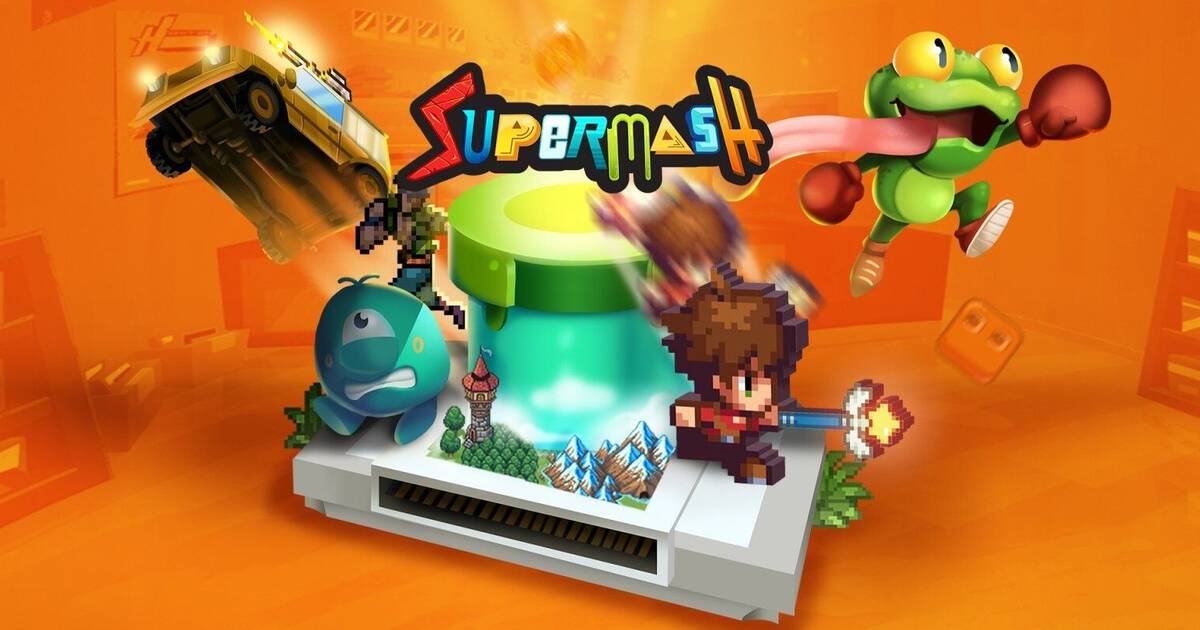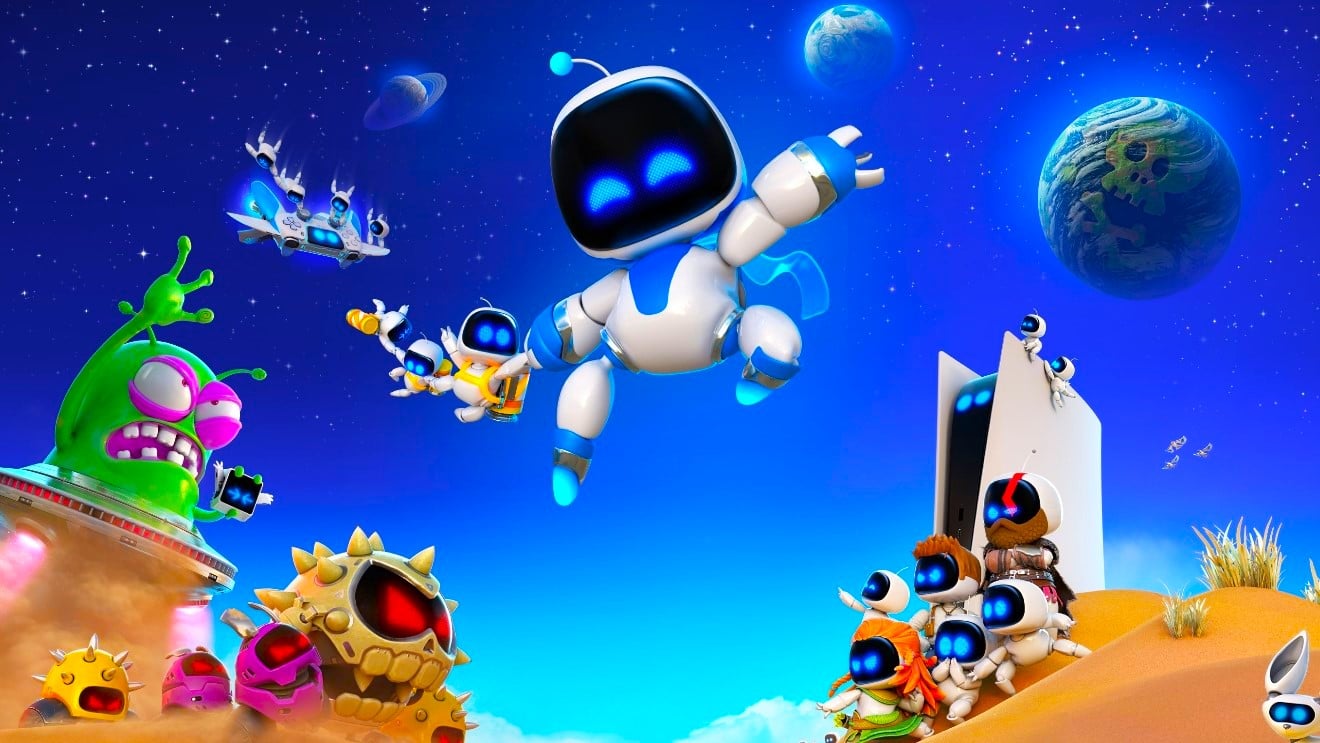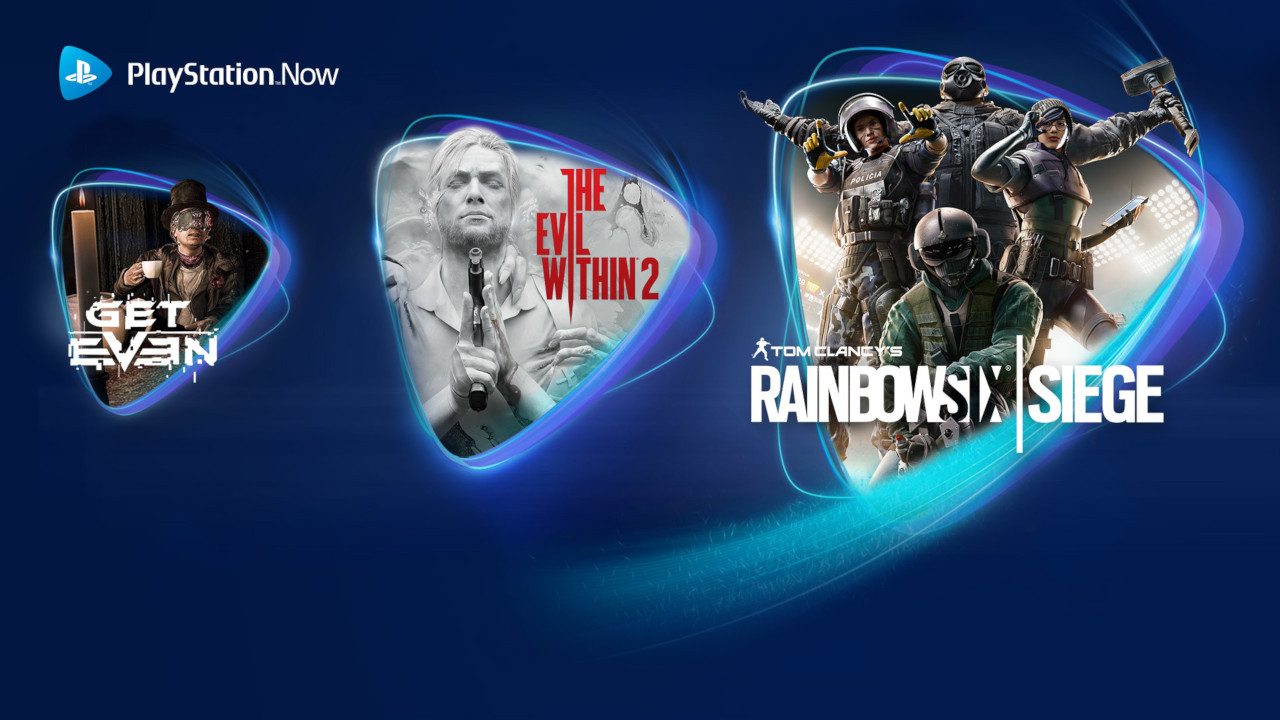Supermash It is a title with a perhaps not unique idea, but it is interesting in the way it approaches the concept of game to create games. Rather than offering deep, complex, inaccessible, and dedicated tools such as Game maker, the work directed by Joseph Tringali He uses the procedural and the random to produce wild games by mixing genres, which can then be shared with friends. After being published on PC last December, the second title of Digital Continue reach Nintendo Switch, Xbox One and PlayStation 4 this May 8. For this reason we have been able to chat with Trigali about the news that incorporate these versions, the next content additions, the relationship with the Epic Games Store and even how they received in the study the negative criticism of the specialized press (the computer version has a 40 in the note aggregator Metacritic).
Tringali does not come back to this of making games where the creativity of the player affects the development of the title. In 2003 cofund 5th Cell, a small study that achieved some fame in the Nintendo DS era with successes like Scribblenauts: Drawn to Life, an adventure in which players could write the names of objects to appear in the world. "He wanted to share the madness that is making games"says developing New Yorker about the initial idea of Supermash
One of the elements that comes from the players and the specialized critic critic of Supermash is that the games it produces are not always fun. Users can mix, for example, a JRPG to whatever Final Fantasy with a stealth game to what Metal gear, and apply cards that change statistics and characters, producing titles that sometimes cannot be beat. "We created the game on purpose in a way that the game itself is making choices. And we really don't know what is possible, (what are) the different combinations." Tringali admits that it is "much more unpredictable" than Scribblenauts, as the result of the games "it could be good and it could be bad". This has caused, according to the developer, to receive "both positive and negative" criticism from players, the media and content creators.

"I think what he does and how he does it probably doesn't align with everyone's expectations, what they think might happen." by mixing different genres. Supermash "It's open on purpose, which for us was a decision we faced during development. We had to either create a limited number of interactions by hand, or create an open system and let that open system choose what it wanted to do." . Sometimes that algorithm creates things "that are strange, that seem broken, that you could never see in a game () no game developer would do or launch that". "The concept itself is polarizing."
The console version fixes bugs and adds small content before the big expansion that will arrive in 2020
The creative admits that another part of the criticism refers to "bugs, some closings. There were some things that did not work as they were supposed to." The launch on consoles (and the corresponding update on PC) fix these issues and bugs, plus add content to two of the available genres

Throughout this year, an expansion of content will be published that add two new genres. "The great thing about Supermash is that, when you add a new genre, you get that new genre, but also that new genre is going to interact with the existing genres in a unique way. "The developer ensures that "love adding content for a long time", and promises that at least during this year, they will continue to fix bugs, update and add new things. "We have a lot of ideas for different genres. There are a lot of genres. But it is a great effort."
On the Epic Games Store: "I don't know if we could have launched into the market without them"
Supermash, like many other independent mid-size games in recent months, was published exclusively on the computer in the Epic Games Store. When asked about this, Tringali assures that Tim Sweeney's store helped them make their game a reality. "I don't know if we could have launched into the market without them. Supermash

The creative assures that the exclusivity agreement with Epic Games Store was "more an opportunity than a restriction". He claims that the store is "very pro gamer in terms of the free content they are giving, in terms of the profit sharing ", says in reference to the percentage of 88% of sales that publishers take, leaving 12% for EGS (on Steam the cast is 70-30). "I'm a gamer, but I'm also a developer, so my perspective is going to be, I guess, different from that of a gamer. But as a developer, we need the resources, the support and the fair deals to make games."
"Ultimately, it's not the digital stores, the publishers, the physical stores, or any of those people who make the games. It's the developers. So I know I'm biased, but we have a place in this ecosystem and We want to make great games for gamers. But that comes with resources and support. Just supporting any platform that offers that support to developers, especially independent developers. "




.jpg?width=1200&height=630&fit=crop&enable=upscale&auto=webp)



